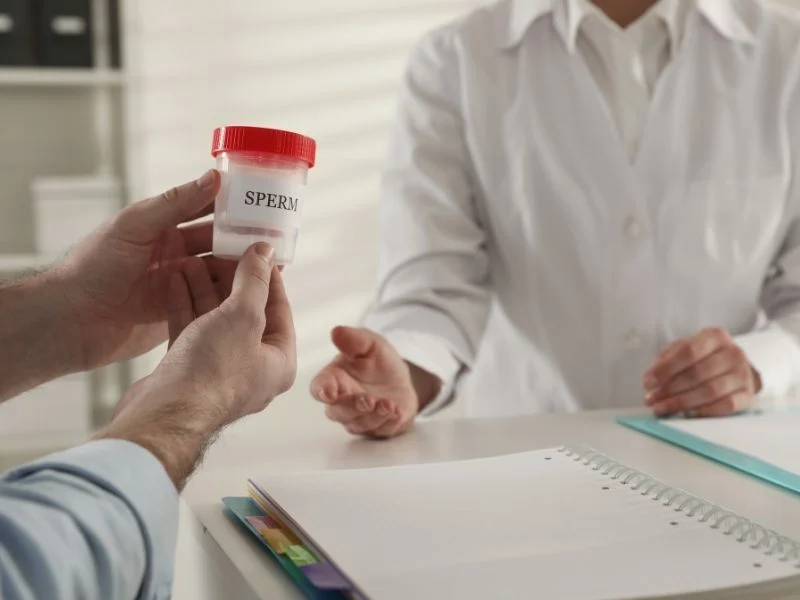The Role of Sperm Donors in Modern Fertility
Sperm donors play an essential role in the reproductive journey of many families. Their contributions help same-sex couples, single parents by choice, and those with male infertility achieve their dream of having a child. Thanks to rigorous medical protocols and state-of-the-art storage technologies, donor sperm can now be safely preserved and used when the time is right—making family-building more inclusive than ever.
Donors are carefully selected through extensive health and genetic screenings to ensure safety for both the donor and future offspring. With the rise of open-identity options, today’s donors are more informed, more supported, and more empowered in their decision-making.
How the Sperm Donation Process Works
Sperm donation is a straightforward and relatively low-risk process, but it involves careful preparation and commitment. Here’s what donors can expect:
Initial Screening: Potential donors complete health questionnaires and undergo interviews to assess medical history, lifestyle, and genetic background.
Medical Testing: Donors are tested for sexually transmitted infections (STIs), genetic disorders, and sperm quality—including count, motility, and morphology.
Sample Collection: Approved donors provide semen samples regularly (usually 1–2 times per week) at a designated facility over a period of several weeks or months.
Quarantine and Retesting: Samples are frozen and quarantined for 6 months. Donors must then undergo retesting to confirm they remain free of infectious diseases before their samples are released for use.
While the physical process is simple, becoming a donor also requires reliability, commitment, and a full understanding of the ethical and legal implications.
Compensation and Support for Sperm Donors
Although many donors are motivated by altruism, compensation is also offered to recognize their time and dedication. In 2025, most sperm banks provide a per-sample payment—ranging from $70 to $150 or more, depending on qualifications and donor demand. High-demand donors (such as those with advanced education, unique ethnic backgrounds, or specific traits) may be compensated at higher rates.
In addition to payment, donors receive:
Free medical screening and genetic testing
Regular health monitoring
Counseling and education about long-term implications
Some clinics also offer flexible scheduling and confidentiality protections to make the process as comfortable as possible.
Who Can Become a Sperm Donor?
Not everyone qualifies to become a sperm donor. Reputable banks have strict eligibility requirements to protect the health and future well-being of both recipients and potential offspring. Typical criteria include:
Age between 18 and 39 (some clinics prefer 21–34)
Good overall health, with no major hereditary disorders
Non-smoker, drug-free lifestyle
Healthy BMI
Willingness to commit to the donation schedule
No history of serious mental illness
Donors must also agree to legal terms regarding parental rights, identity disclosure (if applicable), and the maximum number of families that can use their samples.
Anonymous vs. Open-Identity Donation
Sperm donors in 2025 can typically choose between two paths:
Anonymous Donation: Donors remain unidentified to the recipient family and child. However, in some regions, changing laws or DNA testing may eventually reveal identity.
Open-Identity Donation: Donors agree to allow children conceived with their sperm to contact them once the child reaches adulthood, if they choose to.
This shift toward openness reflects a growing recognition of donor-conceived individuals’ rights to know their genetic origins, and donors today are encouraged to think carefully about the long-term emotional implications of their choice.
Emotional Considerations and Ethics
Though sperm donation may seem clinical, it often carries emotional weight. Donors may wonder about the future children conceived from their donation, how they might feel about being contacted later in life, or how to talk to their own future family about their decision.
To help donors navigate these questions, many programs now offer psychological counseling before and after donation. Peer networks and support groups also provide community for those looking to share their experiences and perspectives.
Finding a Trusted Sperm Bank or Program
Choosing the right donation program is crucial. Look for sperm banks that offer:
Comprehensive medical and genetic screening
Transparent contracts and consent procedures
Professional counseling and education
Legal clarity on rights, anonymity, and future contact
Ethical policies on usage limits and family caps
Donors should feel respected, valued, and fully informed throughout the process.
The Lasting Impact of Sperm Donation
Sperm donation is more than a one-time medical contribution—it’s a powerful act that can change lives for generations. Each sample has the potential to bring hope to people who might otherwise never experience parenthood. Whether motivated by compassion, a desire to help others, or financial goals, donors leave a meaningful legacy.
In a world where reproductive challenges continue to affect millions, sperm donors offer a rare and irreplaceable gift. With today’s tools, safeguards, and support systems, becoming a donor is not only safe—it’s deeply empowering.

